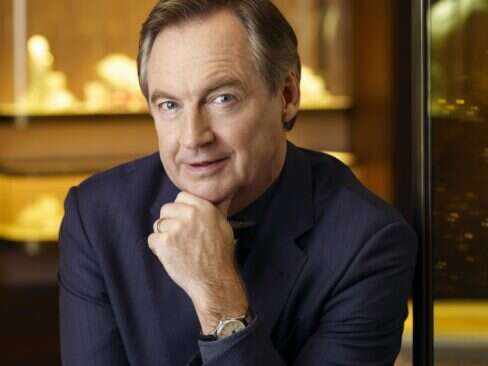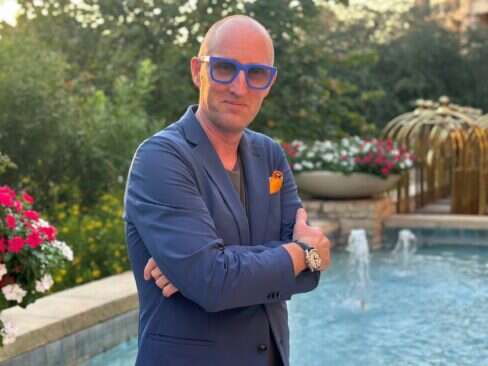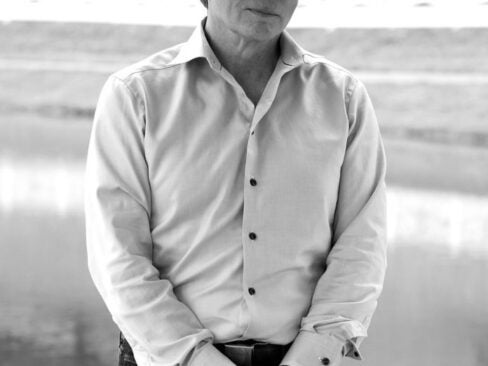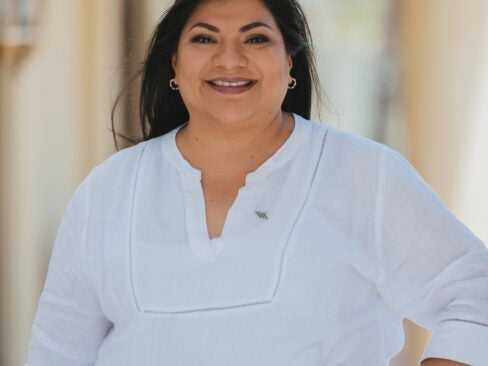
Executive Vice PresidentEmbraer
Luís Carlos Affonso, Embraer’s Executive Vice President, is responsible for the Executive Aviation Business within Embraer, comprising of business and product strategies, as well as marketing, sales and customer support for this segment.
In this position, since 2005, he has led Embraer to significant expansion in this market. Serving as Senior Vice President of Engineering and New Product Development, he led the EMBRAER 170/190 program since its inception, strongly advancing Embraer’s position in the airline market.
Affonso has been with Embraer for 25 years and previously was Chief Engineer for the successful ERJ 145 program. In addition, he is a private pilot and glider pilot instructor. He was Brazilian Gliding Champion in the Olympic Class in 1992.
ET: Could you tell us a little bit about your career path about Embraer’s history in the corporate aviation market?
Luís Carlos Affonso: I have always been fascinated by planes, so I followed that career. I graduated as an aeronautical engineer. But right after college I kind of tried-out different industries. I worked for a bank for some time, but finally I decided to pursue a job at Embraer, since this was my passion. I said to myself, I will work two or three years, and then let’s see; I’ve been with Embraer for 25 years now! I started in engineering. The Legacy made its first flight under my technical responsibility—I was chief engineer at that time. Then I moved to programs, having responsibility for production, supply chain, as well as engineering. And I led the Embraer 170 and 190 commercial airframe program. In 2005, I was invited to lead this new venture in business aviation.
Embraer’s business aviation projects started in 2001 when we launched the Legacy. Today it’s called the Legacy 600. We saw an opportunity at the time to use a business interior with an existing commercial jet platform. The positive experience with the Legacy allowed us to invest heavily in business aviation.
A lot has happened since February 2005 when I came on board. We have launched five new products, we have created a complete customer support and services infrastructure. And here we are, very close to delivering our first purpose-designed business jet, which is the Phenom 100. So before the end of the year we’ll be delivering the first Phenom 100; the Phenom 300 will follow next year. This year we’ll also deliver the Lineage 1000, which is a huge private jet. Next year the Phenom 300, and in 2012 we’ll start delivering the new family, the Legacy 500 family.
ET: Entering business aviation in 2001 must have been a very intense time period?
Luís Carlos Affonso: Absolutely. As you probably know, Embraer is a 39-year-old company, next year we’ll complete 40 years, and we are very strong in commercial jets as well as in defense. So the core competencies are there – engineering, development, industrial competencies, processes, tooling, customer support, strong finances, and so on. So we thought that all those fundamentals could be applied to business aviation.
Business aviation is very different from commercial and defense. We really needed to have a dedicated team that would devote lots of time to understand the business jet customers, and to understand the other players of the industry. So our approach, of course, was to learn about this new business but not to copy what was already out there. We wanted to understand the requirements, and use our core competencies to bring innovative solutions.
ET: What would you say are some of the core differences in selling to the commercial market as opposed to the business aviation market?
Luís Carlos Affonso: I have to say everything is different! Commercial aeronautics is a business-to-business type of negotiation. So, on the other side you have a specialist that understands airplanes and is extremely sensitive to operating costs. And in business aviation, brand is much more important. The cabin is very, very important. This is where the principal, the owner flies the jet. An airline will understand engines, fuel consumption, technical things. Whereas in business aviation, the customer knows a lot about, of course, the performance, but about the cabin and the interior. And, in business aviation, you sell one airplane at a time. So the way of doing marketing is completely different, the way you sell is completely different, the way you support is completely different, because now you have to support an individual owner that doesn’t fly scheduled routes—they go wherever they want.
The core competencies are similar, but the application is very, very different.
ET: Speaking of interiors, what do you see as trends in jet cabin? What can we expect to see to see from Embraer?
Luís Carlos Affonso: Back in 2005, when we started this new phase, the first thing we decided to do was to listen to the customers, to try to identify the customer requirements and what we heard was a desire for branding and for interiors. We have hired topnotch companies around the world to help with those efforts. Our positioning is what we call “intelligent luxury,” luxury but without excess. So it’s a clean interior design style. If you look at our Legacy 500 concept, for instance, it’s modern, it’s elegant. And we believe there is a migration towards that, and we have gotten very good feedback from our customers towards this style.
ET: Are there differences in selling to corporate flight departments vs. chief pilots vs. end users?
Luís Carlos Affonso: Before talking about the sales, let me talk about marketing. On the commercial aviation side you know all your customers, you know all the airlines and you know how to reach them. In business aviation, promotion needs to be much broader. So in commercial aviation, for instance, Embraer selected three magazines to advertise in only; whereas in business aviation we have to continue using those traditional channels but also use lifestyle magazines, niche magazines like golf , wine or publications. So the channels are completely different. The same is true in terms of sales. We have to participate in a number of air shows and local industry shows. We have to expose the product. We have to show the cabins of the planes with mockups, with the real planes. Our airplanes have big passenger cabins, so it’s very important to go to those shows. So we participate in many, many more shows than our colleagues in commercial aviation.
And even in business aviation, as you pointed out, there are different types of customers. And we have specific campaigns, for instance, for CFDs (corporate flight departments) because they are pretty well-identified. We have some mailing lists and we send some technical information. These are more technically oriented buyers, so the language is a bit different. On the other hand, we can identify them in the big and medium corporations, so we can send specific materials to them. And if you think of the fractional or the big charter companies, it’s yet another type of customer, but, again, they are known. And the deal with them is more similar to a business-to-business deal.
ET: What type of people are buying Embraer jets?
Luís Carlos Affonso: Well, we have many types of customers, but typically we have entrepreneurs, very successful people that will use the airplanes for business as a productivity tool. And in many cases they will also use the plane on weekends for convenience and quality of life. The demands in the world are shifting. The United States continues to be a very important market, but this is not the market that is growing the most. The number of high net worth individuals, as we call them, is growing much more in the emerging markets than in the United States and Western Europe. These are more mature markets, whereas in the other markets the economies are growing much faster, and so are the high net worth individuals. So you see places like Middle East, India, other countries in the Asia-Pacific region, Brazil, Eastern Europe, Russia as places in which there is this biggest growth.
And so today the majority of sales goes to those regions. This is a big departure from, let’s say, three years ago, where 70 percent of sales would go to the United States.
ET: What is Embraer’s business outlook for the next few years?
Luís Carlos Affonso: We have not seen an impact so far in terms of sluggish economics. We have had no cancellations from backlog orders, and also our customers continue to pay their progress payments. That’s always a good monitor. We have many new products with long production backlogs and this will protect us from a downturn in sales. If you order a Phenom 100, our next available delivery position is 2012. For a Phenom 300, it’s 2013. For a Lineage, it’s 2011. For a Legacy 600 it is a bit closer, 2010. But on average, our backlogs are very long, and even if our sales slow down, we are well protected. On the other hand, we believe that sales will really slow down, especially in 2009 until the middle of 2010. Our book-to-build ratio will be below 1:1 in 2009 and 2010, meaning that we will sell less jets than we will deliver.
ET: Do you have any hobbies or passions outside of work?
Luís Carlos Affonso: I like to fly and I like to sail. These are my hobbies. Of course I love to go to the movies, to the theatre and concerts. I fly gliders, which are the sailboats of the air. I have even flown the prototypes of gliders Embraer used to produce. I was the Brazilian gliding champion in the Olympics class in 1991. Then the twins arrived, and then I started sailing because I thought it would be better for the family. Now they’re teenagers, they’re 16-years old, they want to be with their friends and boyfriends and girlfriends, so I’m back to flying. I am finalizing my IFR rating. So for many years I flew single pistons, but this year I’ll conclude my twin engine and instrument rating. So I’m trying to step up a little bit in my flying skills.
ET: Do you think your children will go into the aviation business?
Luís Carlos Affonso: You know, my son says he wants to be an aeronautic engineer…I did not influence him, I have to say. I think it would be better for him to start at another company first.
ET: Do you have any favorite places to travel to, either on vacation or when you’re on business?
Luís Carlos Affonso: My family’s plan for every January school break, is to go to different places. For instance, we went to Africa on a photo safari. Last year we went to Patagonia to see the glaciers. I believe our next trip will be to Egypt and the pyramids. And on short the kids love to ski, even though they’re in Brazil.
ET: If you hadn’t gotten into the world of aviation, what could you have seen yourself doing?
Luís Carlos Affonso: I am a man of many interests…I find everything interesting. I’m a very curious person. But as I told you, prior to starting at Embraer, I worked one year for a bank, a bank that is now one of the biggest in Brazil. So I think if I hadn’t come to Embraer I many have chosen to stay in the financial area.










